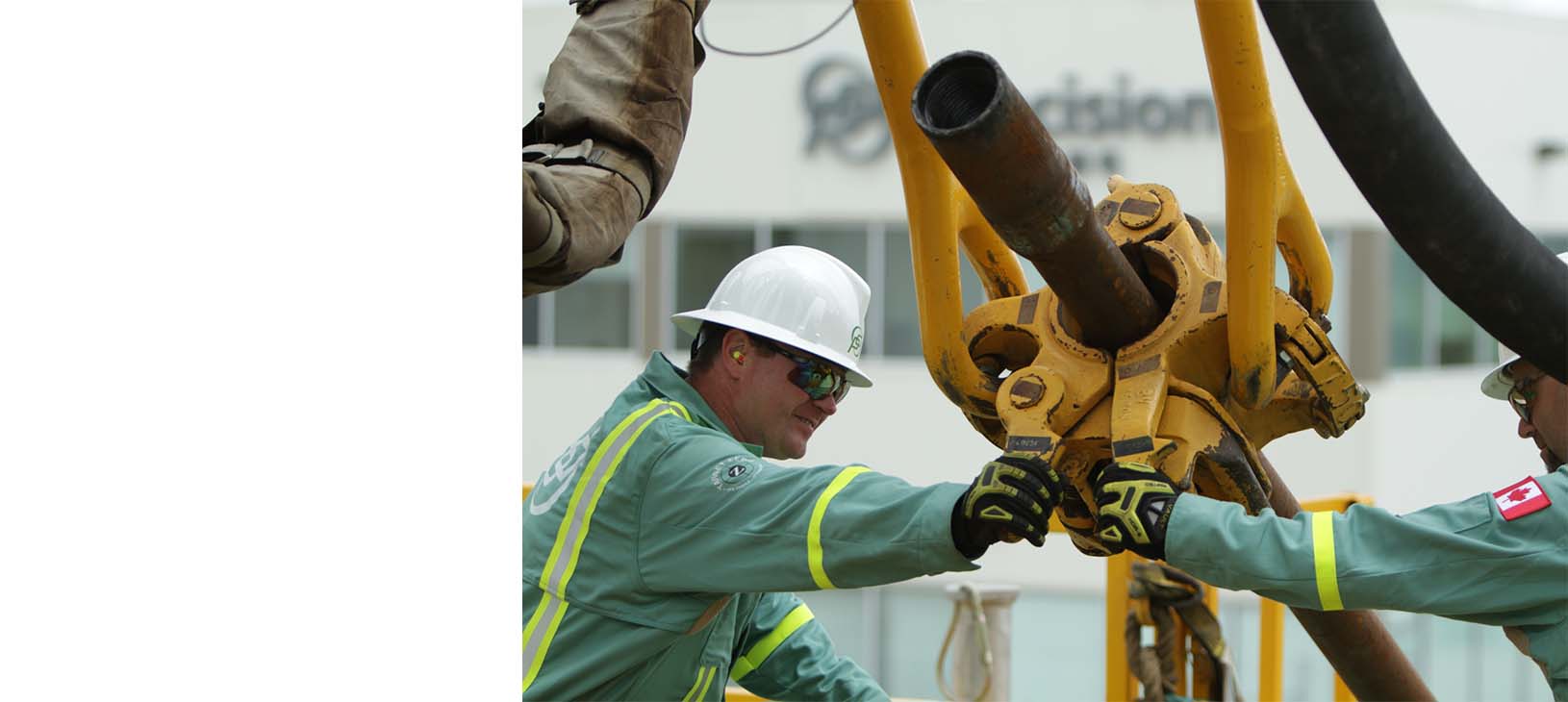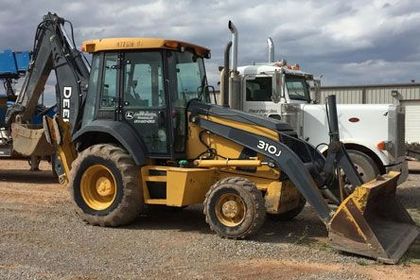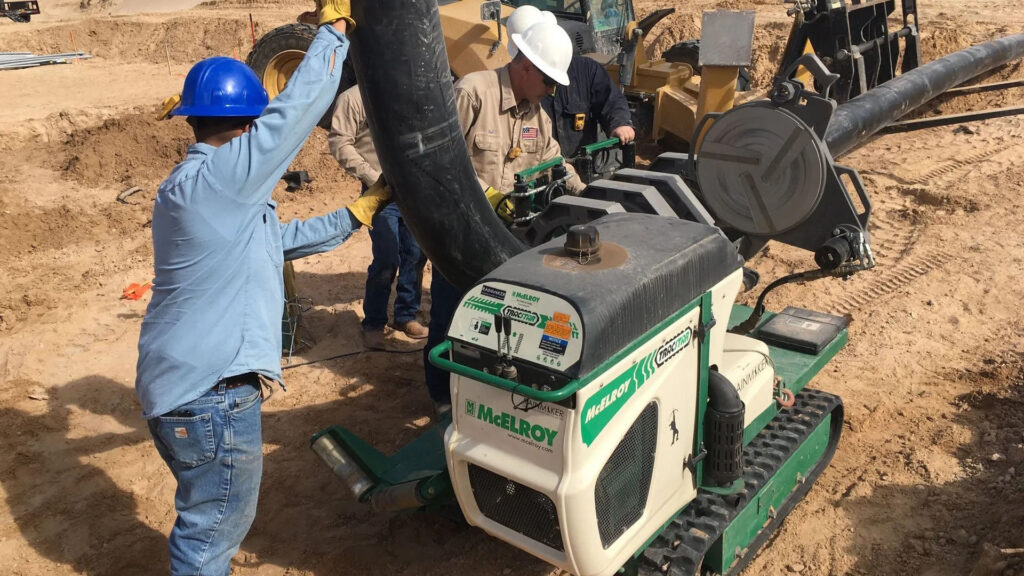The benefits of working with Superior Oilfield Rentals in large-scale drilling
A Comprehensive Guide to the Different Sorts Of Oil Field Equipment and Pipeline Equipment Available
The oil and gas industry depends heavily on specialized tools for efficient removal and transportation. Various kinds of machinery, from drilling rigs to storage tanks, play important duties in this intricate procedure. Each item of equipment serves distinctive features that add to overall functional success. Recognizing these components is essential for anyone entailed in the industry. As the sector evolves, so too do the modern technologies that support it. What advancements are on the horizon?

Drilling Rigs: The Backbone of Oil Exploration
Drilling rigs function as the necessary machinery in the domain name of oil exploration, enabling companies to access hydrocarbon books buried deep below the Planet's surface. These rigs are available in various kinds, consisting of land rigs, offshore rigs, and mobile systems, each created to run in certain environments. Furnished with innovative technology, piercing rigs can pass through geological formations with precision, making certain efficient source extraction. The structural honesty and functional capabilities of these rigs are important, as they must stand up to severe conditions and substantial stress. The selection of an exploration gear impacts the general job expense and timeline, making it an essential consideration for oil companies seeking to maximize their expedition initiatives and make best use of productivity in their procedures.
Pumps: Crucial for Liquid Activity
In the oil removal process, the function of pumps is substantial, promoting the motion of fluids throughout various stages of production. Pumps are essential for transferring crude oil, water, and other liquids from underground reservoirs to the surface and after that via pipes to refineries. They are available in various kinds, consisting of centrifugal, positive variation, and submersible pumps, each offering certain functions based on the liquid qualities and operational needs. Centrifugal pumps are frequently made use of for their efficiency in high-flow applications, while favorable displacement pumps succeed in taking care of viscous liquids. The selection of pump influences general efficiency, functional safety, and upkeep costs. Correct option and maintenance of pumps are important for enhancing production and lessening downtime in oil field operations.
Shutoffs: Managing Circulation and Pressure

Shutoffs play a vital duty in managing the circulation and pressure of liquids within oil areas and pipelines. Numerous kinds of valves offer distinct applications, each created to satisfy details functions fundamental for effective procedure - Superior Oilfield pipeline equipment rentals. Comprehending the attributes and uses these valves is crucial for enhancing system performance and safety and security
Kinds of Valves
Crucial elements in oil field operations, shutoffs play an important function in regulating the circulation and stress of liquids within pipes and devices. Numerous kinds of shutoffs are made use of to fulfill the varied demands of oil and gas manufacturing. Typical kinds include entrance shutoffs, which provide a straight-line flow and marginal stress decrease; globe shutoffs, recognized for their strangling abilities; and ball valves, recognized for their fast on/off control. Furthermore, check valves prevent heartburn, while butterfly shutoffs provide a light-weight remedy for controling flow. Each valve kind is created with particular products and setups to endure the harsh problems typically found in oil areas, making certain dependability and efficiency in procedures. Comprehending these kinds is important for reliable system administration.
Valve Applications and Features
While different types of valves serve distinctive functions, their primary applications focus on controlling circulation and pressure within oil and gas systems. Valves such as entrance, globe, and ball shutoffs regulate liquid motion, ensuring peak performance and safety and security. Entrance valves are frequently utilized for on/off control, supplying very little flow resistance. Globe shutoffs, on the other hand, deal precise circulation law, making them appropriate for strangling applications. Round valves are favored for their fast operation and tight sealing capacities. Furthermore, pressure alleviation shutoffs are vital for preventing system overpressure, securing tools honesty. Overall, the proper selection and application of valves enhance operational performance, making certain the reliable transport of oil and gas via pipes and processing centers.
Compressors: Enhancing Gas Transport
Compressors play a crucial function in the efficient transportation of gas, guaranteeing that it moves smoothly with pipes over fars away. These tools increase the stress of natural gas, permitting it to conquer friction and altitude adjustments within the pipeline system. Additionally, compressors help with the harmonizing of supply and need, suiting fluctuations in consumption and production rates. Different sorts of compressors are employed in the industry, including centrifugal, reciprocating, and rotary screw compressors, each offering distinct benefits based upon the functional needs. Regular maintenance of these compressors is important to make the most of effectiveness and reduce downtime, ultimately contributing to a dependable gas transportation network. Their critical feature emphasizes the significance of compressors in the overall oil and gas infrastructure.
Storage Tanks: Safe and Reliable Liquid Administration
Efficient transport of gas counts on different support group, one of which is the proper management of storage containers. These containers play a crucial duty in securely including fluids, ensuring that functional efficiency is kept while reducing ecological dangers. Constructed from resilient products, they are developed to withstand high stress and corrosive aspects. Properly sized and purposefully located, tank promote the smooth flow of gas and other liquids, stopping traffic jams in supply chains. Routine upkeep and monitoring are crucial to discover leaks or architectural issues, advertising safety and conformity with governing requirements. Inevitably, the reliable management of storage space tanks is essential for the general honesty and dependability of the oil and gas market's liquid handling systems.
Pipeline Solutions: Infrastructure for Transport
Pipeline systems act as the foundation of the oil and gas industry, assisting in the efficient transportation of hydrocarbons over huge ranges. These systems include various elements, including pipelines, shutoffs, pumps, and compressors, all meticulously developed to ensure seamless flow. The products used in pipeline building and construction, usually steel or high-density polyethylene, are picked for durability and resistance to rust. Pipeline networks can span throughout land and water, attaching production sites to refineries and distribution facilities. Additionally, progressed technology internet enables real-time tracking of circulation prices and stress degrees, boosting functional performance. The critical positioning of these pipes decreases ecological impact while taking full advantage of source accessibility, thus playing a crucial duty in conference energy demands internationally.
Security Equipment: Making Certain Employee and Environmental Management
The operation of pipeline systems, while important for energy transportation, also presents considerable security difficulties for workers and the environment. Safety devices plays a significant role in alleviating these risks. Individual safety devices (PPE) such as helmets, handwear covers, and non-slip footwear safeguards workers from physical threats. Furthermore, gas detection systems check for leaks, ensuring that dangerous compounds do not pose a hazard to workers or the surrounding ecological community. Emergency closure systems are critical for swiftly halting procedures during a situation, avoiding possible catastrophes. Spill control materials, consisting view it of absorbents and barriers, are fundamental for decreasing environmental influence. Overall, spending in all-encompassing security equipment is important for maintaining operational honesty and securing both workers and the atmosphere in the oil and gas sector.

Often Asked Concerns
How Do I Select the Right Oil Field Equipment for My Job?
Picking the appropriate oil area equipment involves assessing job specifications, budget plan restrictions, and functional demands. Think about aspects such as equipment dependability, compatibility with existing systems, and the provider's track record to guarantee peak efficiency and safety and security.
What Are the Maintenance Requirements for Oil Field Equipment?
Upkeep demands for oil field tools consist of normal assessments, lubrication, and timely repairs. Operators needs to likewise comply with supplier guidelines, monitor efficiency metrics, and guarantee conformity with security policies to enhance long life and efficiency.

Exactly How Can I Make Certain Compliance With Environmental Rules?
To guarantee conformity with ecological regulations, business have to conduct normal audits, execute finest practices, invest in training, keep correct documentation, and remain updated on legislation (Superior rentals squeeze tools). Partnership with environmental firms can also boost adherence to policies
What Is the Ordinary Life-span of Pipeline Equipment?
The average life expectancy of pipeline tools normally ranges directory from 20 to half a century, depending upon factors such as worldly top quality, ecological problems, and maintenance methods. Normal assessments can considerably affect longevity and functional performance.
Exactly how Do I Safely Move Oil Field Equipment to Remote Locations?
Moving oil area devices to remote locations calls for cautious planning, consisting of course analysis, safeguarding authorizations, making use of ideal lorries, and making certain safety and security methods are complied with. Appropriate training and communication among staffs are crucial for effective transport.